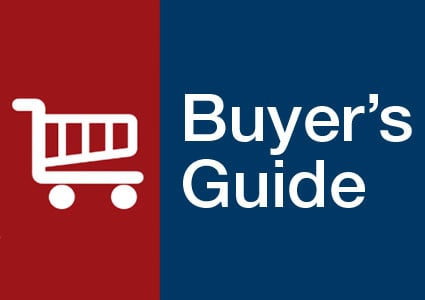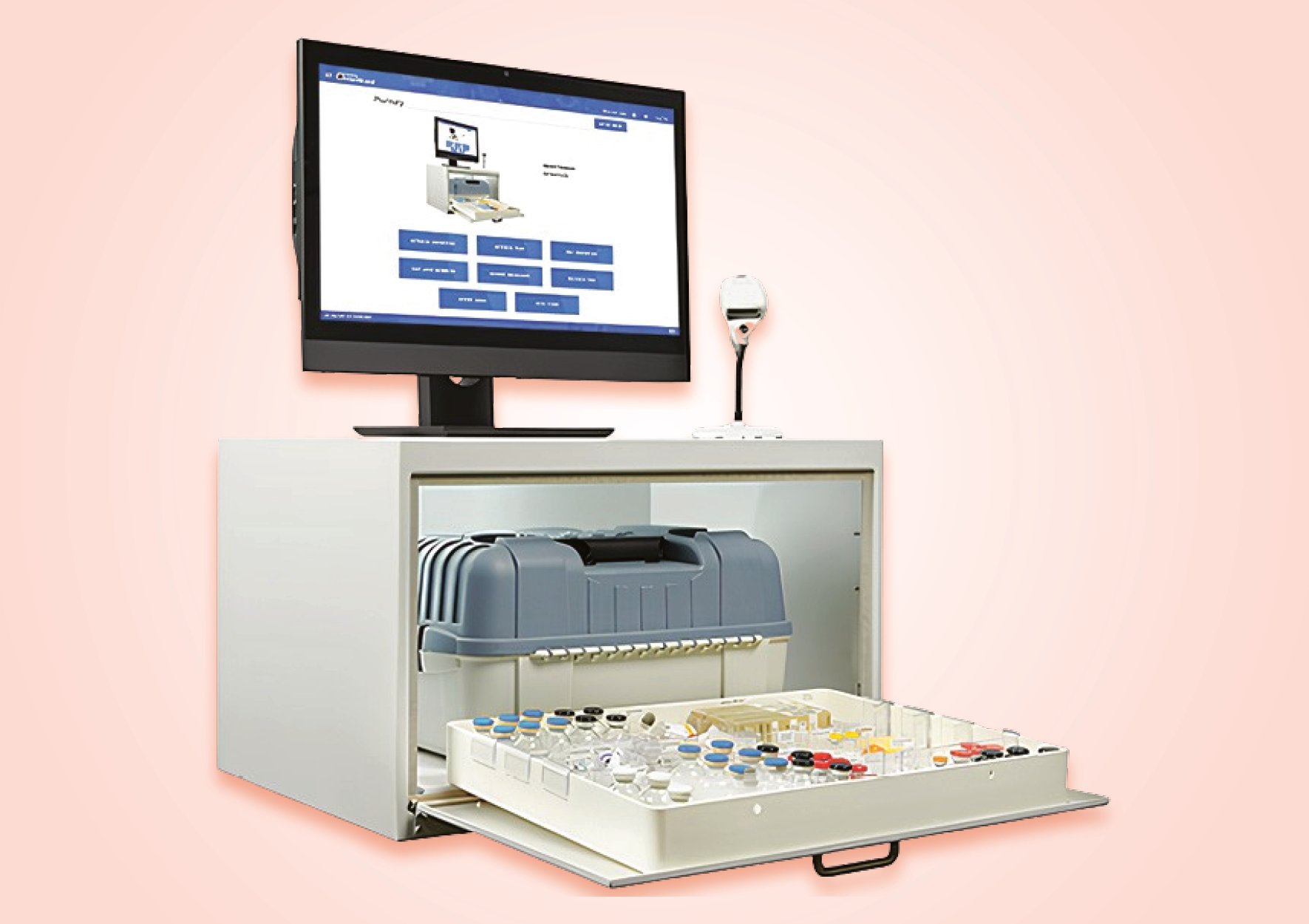- Show Menu
- Contact Us
- FAQs
- Reader Service
- Survey Data
- Survey Winners
- Testimonials
- Upcoming Events
- Webinars
- White Papers
Tips for Working with an Outsourced Repackaging Service Provider
By Noel C. Hodges, RPh, MBA
WHETHER YOU ARE IN THE EARLY STAGES OF IMPLEMENTING A BAR CODED medication administration (BCMA) system or your institution has a well-established program, medication repackaging presents several continuing challenges, from staffing concerns and quality control issues to constantly changing product availability. Partnering with an outsourced repackaging service provider can address many of these challenges. The obvious benefit of working with an outsourced repackaging service provider is their expertise; packaging is what they do. Qualified and licensed repackagers will have quality built into their processes and standard operating procedures. An additional benefit of working with a repackager is that your pharmacy may be able to adjust more quickly to changes in bar coded unit dose pharmaceutical availability. As more drug manufacturers provide products in bar coded unit dose, pharmacies may not want to commit to agreements with in-sourced repackaging vendors or to the labor and equipment costs associated with in-house packaging. Whether taking a hybrid approach to bar coded unit dose packaging (using both in-house equipment and the services of an outsourced service provider) or working exclusively with an outsourcer, there are several considerations to keep in mind when selecting the right provider to work with.
Selecting an Outsourced Repackaging Service Provider
First, examine the licensure and regulation of the repackager’s facility: Is it licensed by the boards of pharmacy and the DEA? Does it meet the FDA’s cGMP (current good manufacturing practices) standards? Walk through the facility to ensure that it is clean and well organized. Second, closely examine their quality assurance practices and controls, such as the double checks built into their processes and their documentation. In particular, bar code recognition – not error-prone manual data entry – should be used to set up packaging runs and medications should be carefully segregated throughout the packaging process, in order to avoid mislabeled medications. Also verify that packages are validated at the end of each run to ensure that the bar codes are readable and match the packaged products. Repackagers should also employ pharmacists to conduct terminal quality control checks, and should retain samples of their packages for each run. Ultimately, there should be several independent visual checks in their processes. To ensure this occurs, follow the flow of products through the facility from where the bulk products are received to where the packaged products will be shipped to your pharmacy. Furthermore, examine the repackager’s documentation and practices for tracking, identifying, and notifying their clients of recalled pharmaceuticals.
In selecting the right repackager to work with, it is key to understand the scope and limitations of their packaging abilities. Is the repackager able to package more than just oral solids, and can they provide robot-ready, oral liquid, over-bagging, and controlled substance packaging? Also ensure that their package size and materials are conducive to your facility’s practices and equipment. Inquire about the repackager’s minimum lot-size requirements and fees for various sized runs and dosage forms, as well any shipping costs associated with the end-to-end ordering process.
You should also inquire about the repackager’s beyond-use dating. Depending on whether they are regulated at the state or federal level, they will likely apply either sixor 12-months’ dating to their packages, respectively. Compare their dates to your utilization data to ensure that you will not waste a significant amount of inventory due to expired drugs. Keep in mind that once a drug is repackaged, your reverse distributor will not likely issue credits for unused doses, given that they are no longer in the manufacturer’s original container. Therefore, it may be prudent to package smaller quantities of high-cost line items, such as AIDS drugs, to avoid costs associated with wastage.
The repackager’s average order turnaround time is also important to keep in mind, as it can affect your overall ordering cycle. Determine how long it will take from placing your wholesaler order to receiving the bar coded unit dose medications from the repackager. It is also important to honor your GPO contracts and ensure that your repackager is an approved vendor. Furthermore, find out if the repackager will allow you to continue ordering directly from your wholesaler, who will then send your ordered bulk drugs to the repackaging facility. This is a key point, because sending bulk products to the repackaging facility from your pharmacy can add a significant amount of time to the packaging cycle. Also determine how the repackager bills for services: Do they bill through the wholesaler or directly to your hospital, and how does that affect your GPO contract?
What Packaging Should You Outsource?
If you choose to outsource some, but not all, of your unit dose packaging, there are several types of medications that are good candidates for outsourced repackaging. High-volume line items are an easy win and a good place to start. An 80/20 report from your wholesaler will help you quickly identify your fastmoving medications. In addition, difficult-to-package and/or labor-intensive items like suppositories, oral cups, oral syringes, pediatric doses, controlled substances, and other specialty items are likely candidates for outsourcing. On the other hand, it may make sense to package small run items in-house, as the labor involved is minimal and the costs of outsourcing the task may make it impractical. You should also identify the drugs already available on your contracts in bar coded unit dose. If the price per dose for those drugs is lower than what your repackager charges, buy them pre-packaged from the manufacturer.
The Costs of Working with an Outsourced Repackaging Vendor
When comparing the costs of packaging doses in-house versus working with an outsourcer, be sure you are comparing “apples to apples.” After considering your total investment in hardware, software, labor, and quality assurance activities, it may prove more prudent to partner with an outsourced repackaging service provider for many, or perhaps all, of your packaging needs.
The costs associated with outsourced repackaging will be largely determined by volume and specific packaging requirements. For instance, oral tablets, when compared to more complicated oral syringes, are fairly inexpensive. On the other hand, small-volume runs may cost more per dose than larger volume runs, due to set-up and per-lot fees. Generally, hospitals can expect to pay 10 to 12 cents per dose – and possibly less – when working with a thirdparty repackager. Even smaller hospitals, which have proportionally smaller orders, may benefit from working with repackagers, because they can avoid the up-front investment in packaging equipment as well as subsequent maintenance costs. For smaller facilities, there are a number of repackagers with low volume requirements that still offer good pricing.
While the negotiated costs of working with a repackager will vary from hospital to hospital, it is crucial that you negotiate the best price possible for your facility. To this end, you should gain a thorough understanding of the shipping, transportation, and lot-change fees charged by any repackager you contract with. When negotiating, take advantage of any opportunities with your health system or GPO; by combining volume, you may be able to lower your unit cost.
The Price of Quality
Quality is perhaps the hardest thing to put a price tag on. However, consider that a hospital may dispense up to thousands of doses a day, and yet it only takes one packaging error to create the potential for a costly medication error. Think of working with an outsourced repackager as an insurance policy for your bar coded, unit dose packages: You are paying for a proven process that follows cGMP standards, to the ultimate benefit of your patient safety initiatives.
For more information on establishing sound practices for purchasing bar coded, unit dose medications, download Mr. Hodges’ recent article on the topic at www.pppmag.com/documents/V4N3/p6_7_8_9_10.pdf.
Noel C. Hodges, RPh, MBA, has served as the director of pharmacy services for HCA Central Atlantic Supply Chain Services since 2005. Prior to assuming his current post, he was the executive director of pharmacy for CJW Medical Center in Richmond, Virginia.
He received his BS in pharmacy from Purdue University and his MBA from Strayer University.
Like what you've read? Please log in or create a free account to enjoy more of what www.pppmag.com has to offer.








